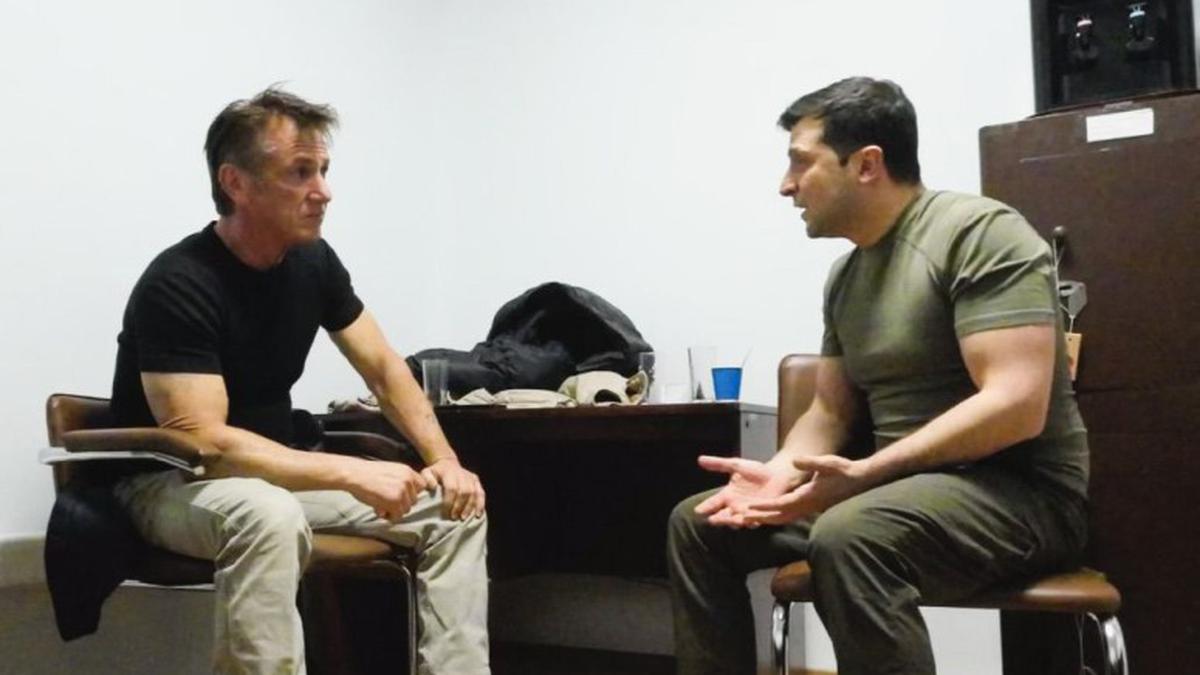
Berlinale 2023: from Sean Penn’s Ukraine documentary to movies on Iran and a jury headed by Kristen Stewart, here’s what to expect
The Hindu
The 73rd edition of the Berlin International Film Festival, February 16-26, is expected to be more politically charged than ever
In early 2020, the 70th Berlin International Film Festival (Berlinale) was the last major film festival to be held before the COVID-19 lockdown, after which it was scaled back for two years. Next week, the festival, known for being the most avowedly political of the ‘Big Five’ (Cannes, Toronto, Venice, Sundance and Berlinale) will be back in its fully in-person format, proudly wearing its heart on its sleeve.
For instance, the festival mascot, the Berlinale bear, will don the colours of the Ukrainian flag — blue and yellow. And the event will showcase three movies on life in Iran, including a documentary on 62-year-old filmmaker Jafar Panahi, who was released last week after seven months in jail for speaking out against the government. Reflecting a socio-political landscape that has witnessed several seismic shifts over the past three years, Berlinale 2023 (February 16-26) has leaned sharply into these global developments.
The festival will see the world premiere of Hollywood actor Sean Penn’s much talked-about documentary, Superpower, a portrait of Ukrainian President Volodymyr Zelensky. Filmed covertly during the Russian invasion of Ukraine, the film captures Zelensky’s efforts as well as Penn’s own reflections on the war. Last year, Penn’s meeting with the Ukrainian President made headlines when he gifted one of his Oscar statuettes to him, sparking off speculation about a possible documentary project.
“The festival is taking place exactly a year after the war started,” says Carlo Chatrian, Berlinale co-director. “So, it is perhaps more relevant to show this film in Berlin because we are so close to Ukraine, we have so many Ukrainians living in this city, and the film has political value.”
Last year, the festival banned the participation of Russian government-backed film companies and media outlets, which has now been extended to Tehran-funded productions. The Berlinale was the first European festival last year to restrict Russia, compelling others like Cannes and Venice to follow suit. “We believe that film festivals can support the struggle in Iran,” says Chatrian. “This year, our films have a strong element of reality.”
The three films on Iran in the festival’s Panorama section — curated under the theme ‘film as a tool of resistance’ — include a documentary by Indian filmmaker Sreemoyee Singh, titled And, Towards Happy Alleys. Shot over several years, it chronicles conversations with Panahi and other Iranian artists and critics as they persevere to balance artistic freedom with personal safety.
Singh’s documentary is among the two Indian features in Panorama, the other being Chhatrapal Ninawe’s Ghaath. The Marathi film — a thriller that follows the tussle between Maoist rebels and the state in the forests of central India — underwent a tumultuous journey even before its world premiere at the Berlinale. It was previously selected for the 2021 edition of the festival and dropped last minute. In a since-deleted social media post, filmmaker Ninawe had alleged the then-co-producer Jio Studios of censoring the project. Now acquired by Shiladitya Bora’s Platoon One Films, the movie is finally coming to Berlin.













